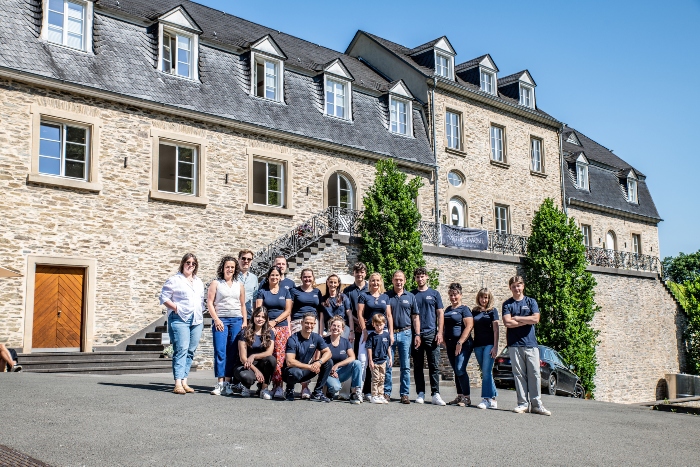
Every visit, somewhat predictably, scores 11 out of 10, from the vertiginous Ürziger Würzgarten vineyard glowing terracotta red in the spring sun to the 19th-century winery meticulously restored and awarded a major architectural prize.
Imagine for a moment, the state of play in 1984, when German wine laws had cheapened the image of the best Grosse Lagen, and when export markets wanted nothing to do with Mosel Riesling. Markus, at only 20 years of age, inherited his father’s modest estate and moved quickly to acquire the best vineyard plots in the Middle Mosel.

Self-taught, Markus wrings a unique purity from his vineyards by working largely without botrytized grapes and thus pioneering ‘dry’ Mosel. Markus isn’t afraid of modernity, it’s mediocrity he eschews: in his cuverie, old oak stückfass rubs shoulders with gleaming steel. 11 pickers work full-time for the estate – such is the rigour of his selection. There is no fining: clarification and stabilization must happen naturally. Then there is his classification system, which allows for around 80 different wines per harvest. Only a fool – or a visionary – would attempt such a model.
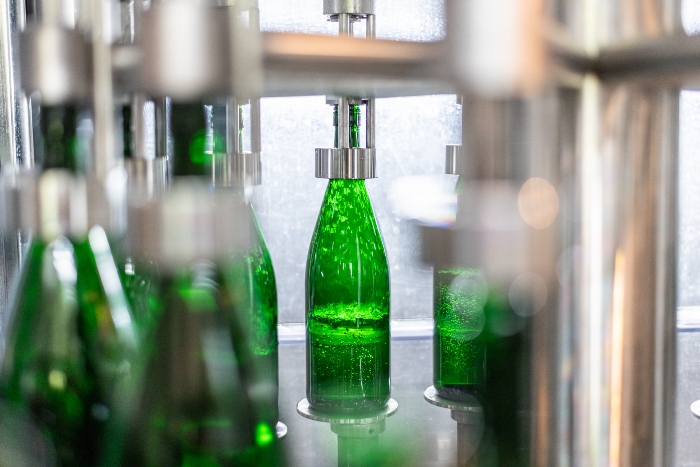
Nobody does Riesling quite like Markus. Post-visit, we sit in his sleek, classically styled tasting room, and marvel incredulously at the longevity of both his dry and lusciously sweet wines. They are unfathomably well-balanced. We race back through the decades, Daniel smiling somewhat patronizingly at my earnest attempts to identify vineyard and vintage blind. I am often 20 years out (inevitably they are older than I imagine). Gently chided, I marvel at wines that can burst with such vitality and razor-sharp, fully ripe, painfully concentrated fruit.
Somewhat controversially, Molitor is not a member of the Verband Deutscher Prädikatsweingüter (VDP), Germany’s exclusive producers’ club: he was denied entry in 2016 by secret ballot[1]. Whether he needs the validation is academic, as he has chosen not to pursue it. Markus now has his own classification system within QmP: white caps for dry wine; green for medium; golden for sweet. There is, additionally, an ascending star rating of up to 3 stars for the cru wines. All of which affords Markus a certain cult status for innovation, which might fall flat were his output not so decidedly brilliant.
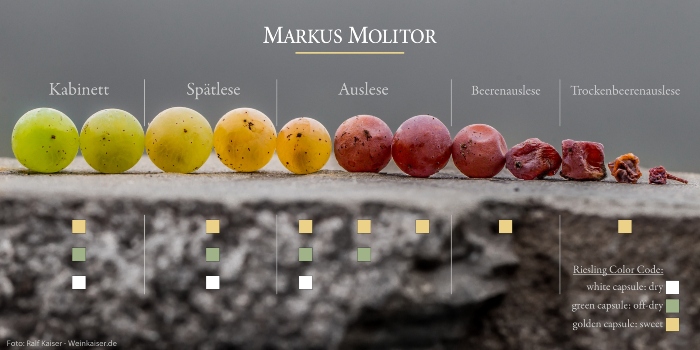
It is not so much that Markus Molitor scooped three 100-point scores for his Auslesen in 2015 that commands respect. It is more a question of consistency. No winery submits more wines to Robert Parker’s Wine Advocate. His top 10 submissions of 2022 outperformed Romanée-Conti. This is Riesling, too, and not some steroidal red all à la mode in New York, so this estate’s medal cabinet deserves a special mention.
Notwithstanding the accolades, the wines remain steadfastly obtainable. Apart from the Auction Wines and the high ground occupied by the rare TBAs, there are superb options both for the investor and the amateur. Riesling, of course, ages for eons, so the wine has decades of investment potential to fulfill. And, he is far from sitting on his laurels.
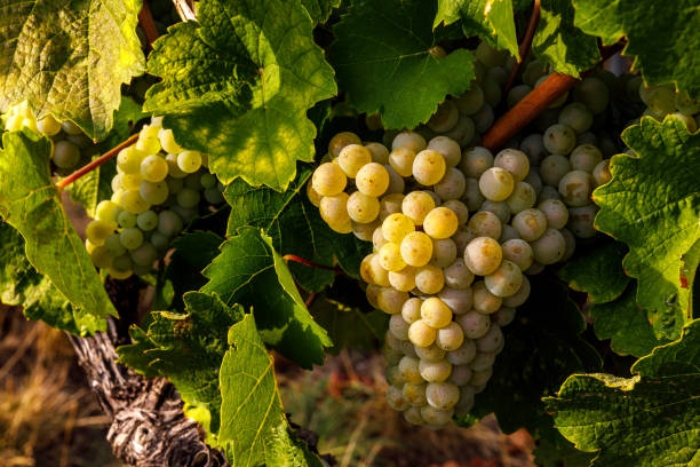
His recent purchase and renovation of the abandoned Saar Valley icon, Domäne Serrig, was just released through La Place de Bordeaux – making it the first German winery to release its entire production through the famed French distribution system. His first vintage from Domäne Serrig, the Vogelsang Grosse Lage 2020 scored – you guessed it – 100 points.
Wherever it is from which Markus draws inspiration, it is evident that he has a very astute reading of the market. He has made a real success by out-foxing current trends, but he is not blinded by it. As we leave, Markus is outside on a forklift. One gets the impression that he is simply keen to keep on doing what he does best.
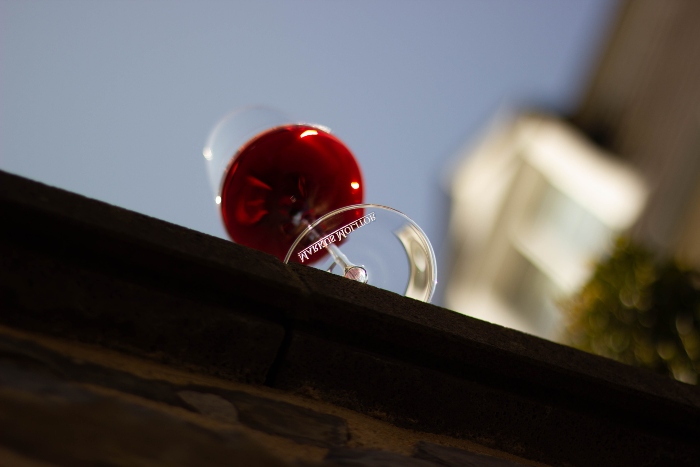
by Michael Palij MW
Michael Palij MW is the third Canadian Master of Wine. He specializes in Italian wines and has introduced Opimian to some truly special producers.


